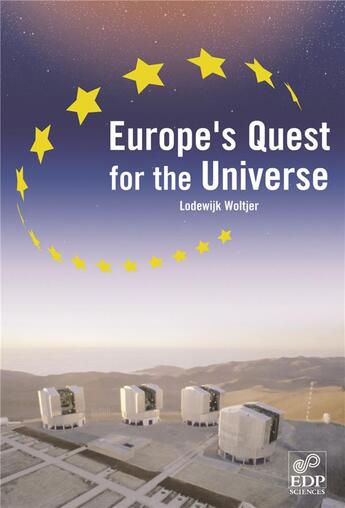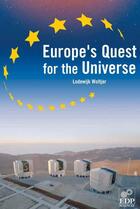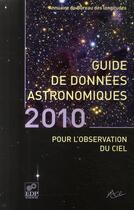-
Date de parution : 05/01/2006
-
Editeur :
Edp Sciences
-
EAN : 9782868838131
-
Série :
(-)
-
Support :
Papier
Résumé:
The Large European Instruments developed for observing the Universe, from the Sun and planets to its must remote ruches, form the principal subject of this book. Some of the more striking results obtained or anticipated on the ground or in space at radio, infrared and visible wavelengths and in... Voir plus
The Large European Instruments developed for observing the Universe, from the Sun and planets to its must remote ruches, form the principal subject of this book. Some of the more striking results obtained or anticipated on the ground or in space at radio, infrared and visible wavelengths and in X-, gamma-ray and cosmic-rays are covered. The roles of the European Southern Observatory (ESO and the European Space Agency (ESA) are stressed, but national initiatives are also touched upon. Input into the research system in the form of financing and personnel and output as publications are evaluated. The time f me covered extends from around 1980 till about 2020. While this kook centers on European developments, comparisons with what others are doing are included. After the war in Europe in science had fallen far behind the US. Thanks to European cooperation equality has again been reached. Through ESO's Very Telescope and ESA's missions, like the Infrared Space Observatory, X- and gamma-ray satellites, Mars Express and others, Europe is fully and independently present at the forefront. The need to integrate the scientists and engineers from the new EU countries into the overall organization of European science is noted, an integration which ultimately could extend even further eastward. This book addresses a wide audience: astronomers and space scientists, students, politicians involved in science funding, amateur astronomers and the educated public with an interest in the science and technology achievable by European cooperation.Lodewijk Woltjer studied at Leiden University in Holland. Chairman at the Astronomy Department at Columbia University, he became Director General of ESO from 1915-1981. He has been chairman of the ESA Space Science Advisory Committee and President of the International astronomical Union. For several years now he has been associated with the Observatoire de Haute-Provence and also with the Osservatorio Astrofisico di Arcetri in Florence.
Donner votre avis

















